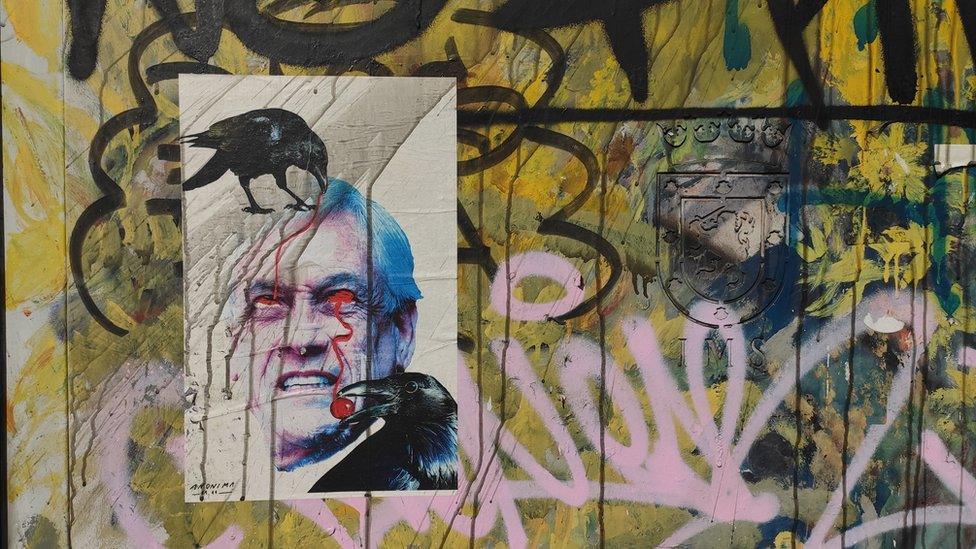Chile indigenous: Time to make our voices heard
- Published
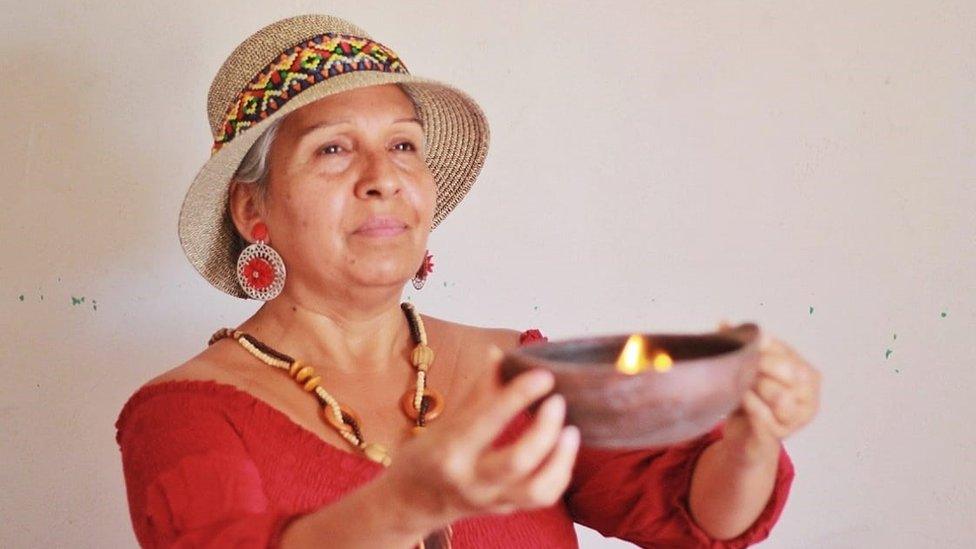
Chile's indigenous groups see the new constitution as a chance to gain recognition
Last October, millions of Chileans voted in favour of scrapping the country's constitution, which dates back to the repressive rule of Gen Augusto Pinochet.
Replacing it had been one of the demands made in nationwide protests which swept through the country in 2019.
This weekend, Chileans are being asked to choose the 155 members of the Constitutional Convention tasked with drawing up a new draft.
Not only will there be gender parity with half the seats reserved for women but 17 seats have also been set aside for representatives of Chile's indigenous groups, which make up around 12% of its 19 million inhabitants.
With Chile the only country in Latin America whose constitution has until now not even recognised the existence of indigenous groups, those running for the seats are keen to make their voices heard.
Ten indigenous groups will be represented with seats allocated according to their size. Journalist Jane Chambers spoke to some of the candidates from the smaller indigenous groups to hear what they hope to achieve.
Inés Carvajal & Felipe Retamal, Diaguita: We're concerned about how our land is being used
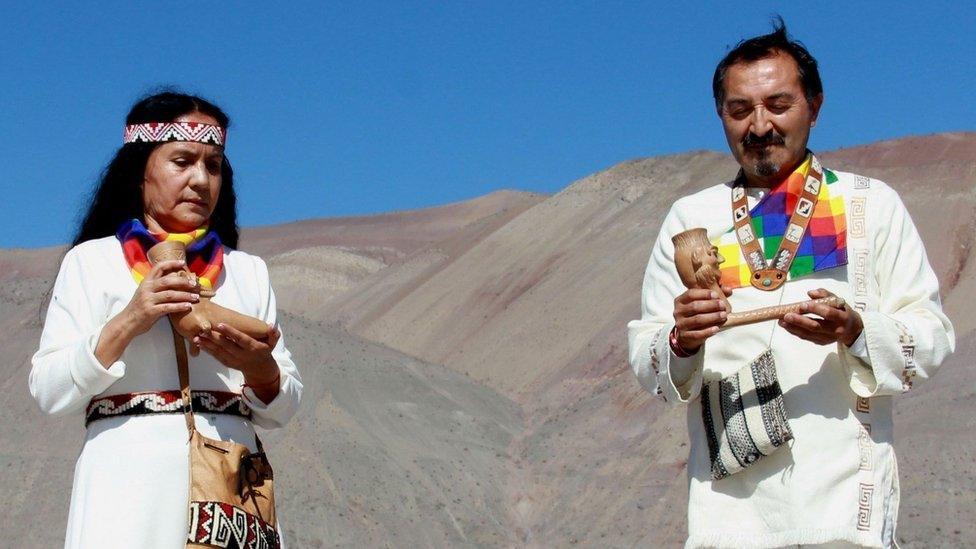
Felipe and I come from two different valleys in the north of Chile. Like many other indigenous communities, we are concerned about our territories and how the land around us is being used.
We both share the same vision to look after our people and their rights and if Felipe wins the election to represent the Diaguitas, I will support him.
We have a distinct culture with our own way of dressing, tunics made from natural fabrics and dyes, woven head bands. We also have a special bag that our ancestors used to carry the seeds when they were sowing their crops.
Like Inés, I am passionate about preserving our identity. The Diaguitas were in danger of extinction. I am teaching children our language and music. I also want people to know about the art and ceramics which we are famous for.
Many people living in Chile do not know much about our culture and that needs to change.
Tiare Aguilera, Rapa Nui: I want our culture to be taken into account

Even though our territory [on Rapa Nui, also known as Easter Island] was recognised as a World Heritage site by Unesco in 1995 there is still a lot more to be done. Whilst we are part of Chile, we are a Polynesian island, so I want our culture to be taken into account.
According to the last census, there are around 7,700 long-term residents on the island, roughly half of which are Rapa Nui.
If I win, I will be representing my people and will listen to them about what their priorities are in a new constitution and put them forward.
I want more resources invested in the island and the teaching of our language. I am a lawyer and it is tough here because there are no universities and you have to travel outside the island if you want to study.
I am the only female candidate in Rapa Nui. For me, it is really important not only that indigenous communities will be included in the drafting of the constitution, but also that there will be an equal number of male and female members on the committee.
Luis Jiménez, Aymara: We want a plurinational Chile
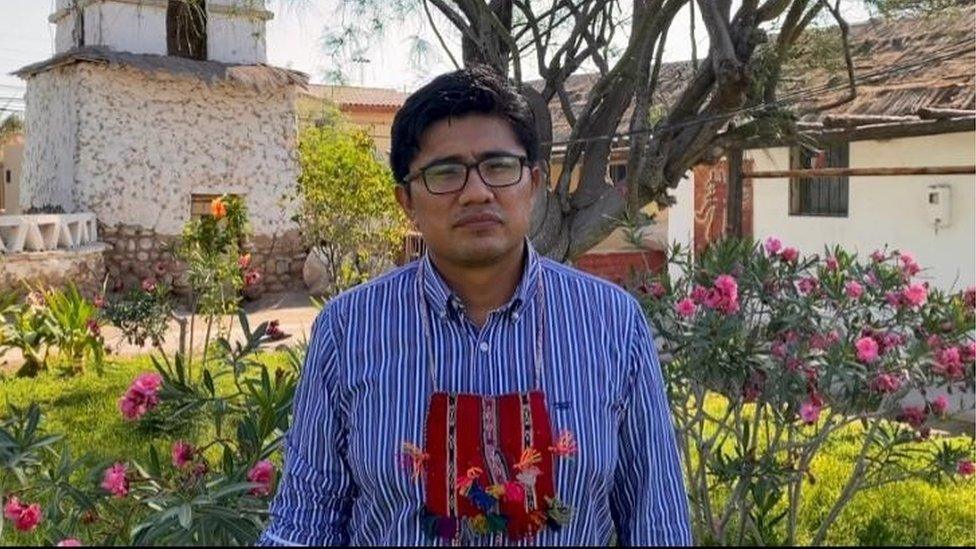
There are about 160,000 Aymara people in Chile. They mainly live right up in the north of Chile on the border with Peru and Bolivia in the Altiplano, the Andean Plateau.
But many of us have had to move to the big cities in the region and the capital, Santiago, to find work. I am a lawyer and live in [the northern city of] Arica but my family still live in our traditional territories.
We want a plurinational state in Chile where our culture, ancestral lands and language are recognised. For us, our community is more important than the individual.
There are large Aymara communities just across the border in Bolivia and Peru that we are part of and we want to be able to trade freely with them and not be constrained by the Chilean frontier which has been imposed on us.
Zulema Mancilla, Colla: Our relationship with nature is vital
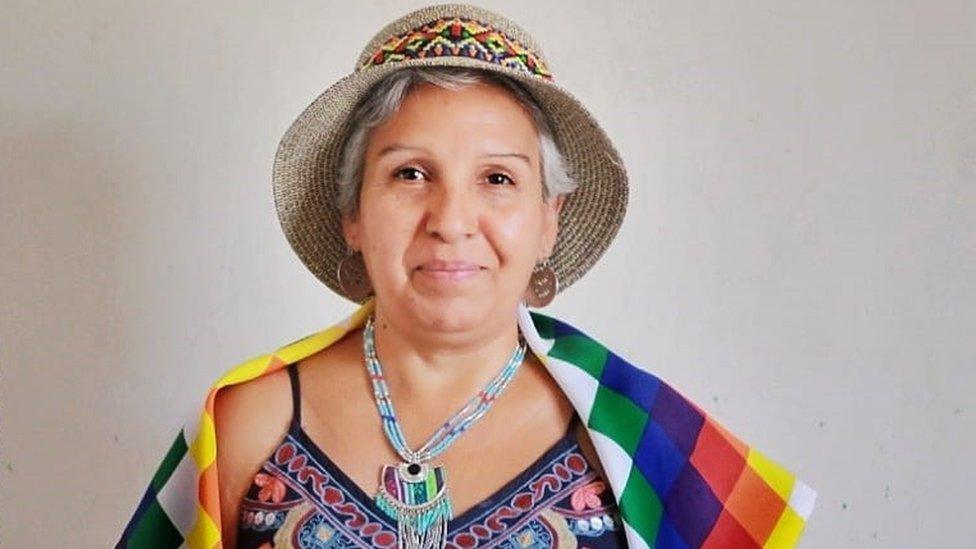
I am part of the Colla indigenous group and I live in Pastos Grandes which is in the foothills of the mountains, in the northern Atacama region.
"Colla" means people from high places. The Chilean Collas have always lived in this area, although recently, because of a lack of work, some of us have emigrated to other parts of the country. According to the 2017 census, there are 20,874 of us.
I am an artisan and I teach people about our culture through my traditional weaving. It is up to the women in our community to look after our way of life.
I have been campaigning for my community for years. For us, our relationship with nature is vital. We have always had problems with the mining companies in our region. I want that to change so that we have ownership over our natural resources and how they are used.
I am campaigning for three things - our identity, our culture, and our right to be recognised. Being part of drafting the new constitution will be a huge step towards that.

You may be interested in:
Celebrations for Chile after constitution vote
Related topics
- Published19 October 2020
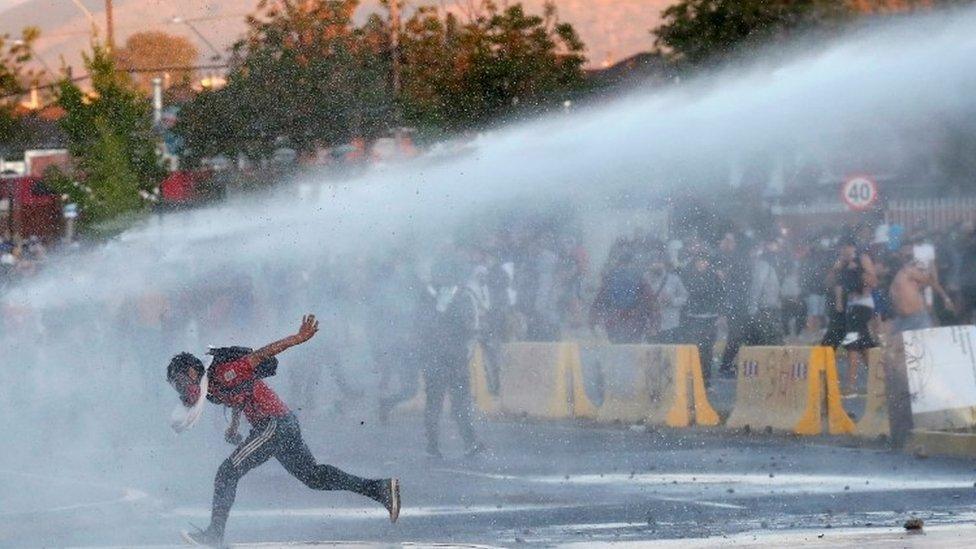
- Published21 April 2020
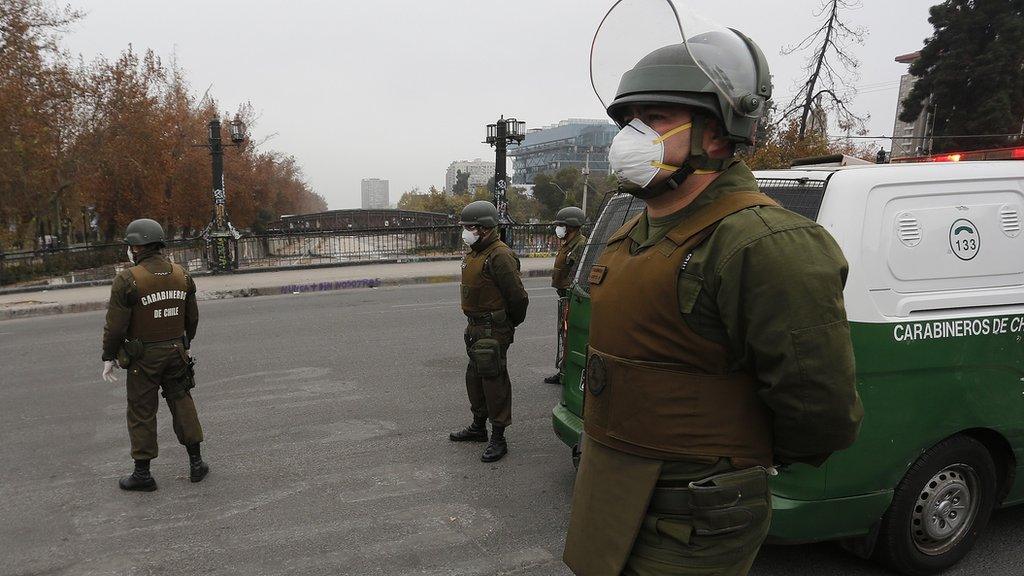
- Published1 March 2020
